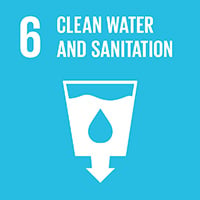Send to a friend
The details you provide on this page will not be used to send unsolicited email, and will not be sold to a 3rd party. See privacy policy.
In brief: When Turkey announced it would fill the Ilisu dam on the Tigris River earlier than expected in 2018, millions of Iraqis faced water shortages. With no agreement reached between Turkey and Iraq regarding the sharing of water resources, Iraq’s water and food security was put at risk. SciDev.Net‘s news story covering potential shortages contributed to the postponement of the filling and operation of the dam’s reservoir by Turkey, helping safeguard water and food security.
Why it matters: As the United Nations states: “Sustainable management of water resources and access to safe water and sanitation are essential for unlocking economic growth and productivity and provide significant leverage for existing investments in health and education.”[1]
The big picture: The early filling of the Ilisu dam on the Tigris River demonstrates how countries are connected and affected by water resources. Access to clean water and sanitation is critical for all, as affirmed by the creation of the United Nations Sustainable Development Goal 6: Clean Water and Sanitation.
By the numbers: According to Ramadan Hamza Muhammad, water strategies and policies senior expert at the University of Dohuk, more than 15 million people would have been affected by the early filling of the dam.
Background
For many years, the Turkish Ilisu dam on the Tigris River has posed a serious threat to Iraq. Its operation has endangered human life, affecting per capita drinking water as well as food security through reduced irrigation for agriculture.
On 19 November 2017, the Iraqi Minister of Water Resources and Irrigation expressed his concern in a press statement. By early January 2018, an Iraqi delegation called for Turkey to postpone the operation of the dam until June 2019. However, with no written agreement reached on water sharing, fears ran high for a worst-case scenario.
Making matters worse was Turkey’s announcement that it would start filling the dam seven months earlier than expected – March instead of October – depriving Iraq of half its share of the river’s water. It was estimated that more than 700 thousand hectares of agricultural land would be destroyed. In Baghdad, the level of the Tigris would drop by more than half.
According to Ramadan Hamza Muhammad, water strategies and policies senior expert at the University of Dohuk, Iraq, the anticipated decrease from 21 billion cubic metres to 9.5 billion cubic metres per year would affect the quality of the river’s water “with an increase in saltwater infiltration, making it unsuitable for drinking or even irrigation”. “This water system has a direct impact on Iraq’s water and food security and the lives of the Iraqi people,” he said.
What action did SciDev.Net take?
SciDev.Net first heard about Iraqi fears of water shortages caused by the building of the Ilisu dam in December 2013, publishing its first story on the subject on 13 January 2014, Iraq’s growing concern over the Turkish Ilisu dam.
By 2018, SciDev.Net Regional Coordinator for the Middle East and North Africa, Bothina Osama, heard about the early filling of the dam through contacts at Iraqi newspapers and commissioned a story from journalist Adel Fakhir.
Fakhir contacted experts and covered the story from a human interest angle, revealing the dangers and risks that awaited vulnerable people in Iraq. SciDev.Net published a news story on 14 January 2018 under the title, Iraq is about to face the stop of Tigris River flow.
The issue continued and, on 17 July 2020, SciDev.Net published a third story, Iraqis’ fears are embodied with the start of operation of the Turkish Ilisu dam.
SciDev.Net‘s aim for the articles was to raise awareness among policymakers of the seriousness of the water shortage in Iraq, digging into the scientific facts and interviewing experts and officials to reveal possibilities for solving the problem. As ever, the overall goal was to publish a story that would contribute to raising people’s standard of living and help achieve their wellbeing.
| Website reach (unique page views) | |
| 39,716 |
What was the impact of SciDev.Net‘s action?
Over the years, the operation of the dam has been postponed several times. SciDev.Net journalist Fakhir spoke to officials who said strong media coverage, including that of SciDev.Net, was instrumental in helping to push the Turkish government to address the situation.
“SciDev.Net‘s coverage was balanced, neutral and scientifically accurate. It covered all aspects of the subject from both the Iraqi and Turkish perspectives. This contributed to the postponement of the filling and operation of the dam’s reservoir,” said Ahmed Ibrahim, head of water research, National Centre for Water Resources Management, affiliated to Iraq’s Ministry of Water Resources.
Ramadan Hamza Muhammad said: “SciDev.Net‘s coverage had a clear impact on Iraq’s future in relation to water, helping to raise Iraqi public awareness about the issue and leading the government of Iraq to demand that Turkey postpone its water storage, particularly during the dry seasons. The coverage was accurate, continuous, credible, fair and impartial.”
Ramadan paid tribute to Adel Fakhir for selecting subjects directly related to the lives of the people included in his news stories.
In 2021, the Turkish President ratified a memorandum of understanding on the release of water, starting a new era in the Iraqi-Turkish bilateral relations. The media described it as “fair and equitable” and SciDev.Net published this story.
Relevant SDGs:
 |
   |


